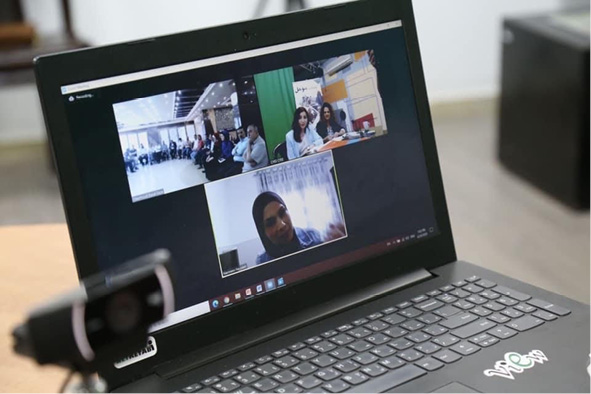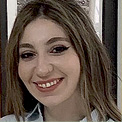
The Palestinian Charity for Youth Economic Empowerment (CYEE) was established formally in 2011. It envisages a Palestine where young people have the skills needed for economic success and enjoy access to broad and durable networks of business owners, entrepreneurs, and decision makers. CYEE believes that providing youth with these opportunities will contribute to building freedom and equality in Palestinian society. The organization is committed to a strategy that recognizes yet attempts to overcome the prevailing local challenges with a responsive, tailored, and effective approach to youth. CYEE encourages youth to perceive themselves as stakeholders in their society and work towards a lively community through advocacy and awareness raising, focusing particularly on women’s economic empowerment. The organization tailors its programs to address the obstacles women face in the job market and strives to offer them the educational and vocational skills they need to excel in their careers.
Since its establishment, CYEE has worked to lay the groundwork in the West Bank and Gaza for a broad network of partnerships with various local, national, and international stakeholders from the public and private sectors and with youth from all over the Palestinian territories. It has worked closely with educational institutions and vocational centers on upgrading their capacities to provide better service for youth in general and women in particular.
CYEE continues to serve as the International Youth Foundation’s (IYF) main implementing partner in the second phase of the Equip Youth Palestine program. This program aims to create a sustainable enabling environment that fosters youth employability in Palestine and leads to improved job and life outcomes for more than 1,800 young women and men. In collaboration with IYF and in coordination with its 15 partner vocational training centers (VTCs), CYEE plans to implement training workshops and coaching sessions for staff at the Ministry of Labor and VTCs and presently provides ongoing technical support to VTCs. The charity furthermore conducts outreach to the community and employers, provides career-preparation support, and facilitates job and internship placement for youth.
Equip Youth Palestine program
The Equip Youth (EY) Palestine program creates a sustainable environment to foster youth employability in Palestine through life-skills and career training. Despite the challenges of the COVID-19 pandemic, the program has made good progress towards its midterm goals, equipping over 400 students with technical and life skills in the first year. EY plays a significant role in changing the social perception of gender roles and of men and women’s contribution to the labor market as well as the stereotypical image of VTCs by fostering activities that target youth of both genders who are enrolled in VTCs. More virtual and physical activities must be implemented to create such a change of norms and perceptions through gender-awareness and mainstreaming campaigns. Building on experience gained through prior EY program activities, CYEE aims to organize and implement activities that focus on increasing awareness of gender issues in Palestinian vocational workplaces. It hopes to increase young women’s awareness of career pathways and improve their access to the vocational sector’s labor market. We hope to reach more than 2,000 youth through gender-awareness workshops, posters, short messages recorded by young men and women, and other activities that focus on female careers by inviting guest speakers, holding roundtable and panel discussions, and implementing workshops with the participation of VTC staff, employers, and youth.
The first steps in going virtual
The COVID-19 pandemic necessitated many changes and adjustments to CYEE’s program. In June, the Passport to Success (PTS) training of teachers (TOT) in Gaza was conducted virtually for the first time, resulting in very successful teacher-training sessions. In efforts to cope with the COVID-19–related school closures and the cancellation of in-person extracurricular activities, project activities were adapted and an innovative method that blends virtual and in-person training was developed. The participants came from five partner VTCs in Gaza, and the training was conducted as part of the EY Palestine project. Likewise, as Palestine’s infection rate increased over the summer, the team shifted to a fully remote PTS TOT in the West Bank in September. The sessions were augmented by a series of virtual workshops to build the trainers’ capacity in using technology as a teaching tool. This project received high praise from the Palestinian Ministry of Labor.
Implementing these sessions has not been easy. In Gaza, the team had to navigate challenges that ranged from frequent power cuts in the region to inconsistent internet connections, impacting the trainees’ ability to attend. To overcome these obstacles, the team designed the course to combine remote training via Zoom with small in-person group teaching by local teachers from Gazan VTCs. By dividing what under normal conditions would be a single large group into two smaller groups, it was possible to practice safe social distancing while connecting every trainee to the digital technology they needed in order to access the training. The master trainer, dialing in from the West Bank, was then able to communicate with the groups individually via Zoom and facilitated the interaction between the two groups.
The Palestinian Charity for Youth Economic Empowerment has turned the challenges of the COVID-19 pandemic into a successful program that likely will be continued once the health crisis has subsided.
But even though this virtual training may have begun as an experiment necessitated by COVID-19, it is quickly morphing into an opportunity to reach more trainees and beneficiaries even after the pandemic subsides. Following positive feedback from VTC leaders and the trainees themselves, plans to conduct more virtual training sessions in Palestine are already under way. It is the next step as we strive to improve our training and outreach to young people in a changing world.
Today, the implementation of these virtual training sessions at VTCs in Gaza and the West Bank is considered a success story, as people manage to create success despite the challenges and lack of resources they face. VTCs suffer from several shortcomings that negatively impact students’ employment, including a lack of systematic engagement with the labor market, poor infrastructure and equipment, and the failure to add new technologies and specializations to the curricula, as well as a lack of career guidance, internship support, job-placement services, and integrated life-skills training. Considering the skill gaps that have been created by these challenging circumstances, business owners have expressed a need for skilled workers to fill available positions. Therefore, VTC students will face greater employment opportunities if their education is supplemented with more on-site training and links to private sector enterprises, as well as greater emphasis on practical and life-skills training and improved familiarity with recent technologies in their fields.

A case study
Yasmeen Al Dani is a teacher at Al-Shafei Vocational Training Center in Gaza. Yasmeen teaches beauty care to her students and faced challenges in finding good sources for life-skill topics, specifically for young women. She believes that teaching life skills is as important as teaching technical skills to her students. “Gaining the skills required to successfully deal with customers,” she explains, “is more challenging for workers at the workplace than their ability to provide the service itself.”
Yasmeen heard about the EY program and its offer of life-skills training to VTC teachers. She waited patiently for the training because the imposed closure of Gaza made it difficult for the team to enter the Gaza Strip. With the COVID-19 pandemic exacerbating her situation, Yasmeen was about to lose hope when she was invited to participate in the PTS remote TOT. Yasmeen admitted, “I never imagined myself attending virtual training like the one we had! We felt as though the trainer were here in Gaza among us. I will never forget this TOT; it has left a clear impact on me, both on the personal and professional levels.”
Through online teacher training, trainers and their trainees at vocational training centers in Gaza can overcome access limitations imposed for political reasons.
Yasmine asserts that the PTS training helped her to be more organized personally and professionally, especially when covering technical material with her students. She emphasized that she benefitted greatly from the PTS training methodology in developing her annual teaching plan and is looking to integrate the PTS topics within her curriculum.
As a female teacher, Yasmeen is trying to reach as many female students as possible. With PTS, she hopes to make them competitive in the labor market because she understands the value of life-skills training for a young person, both personally and professionally.
Yasmine likes to call herself an ambassador for Passport to Success in Gaza. She is looking forward to training as many students as possible, especially the most marginalized and less fortunate students in Palestinian society.


